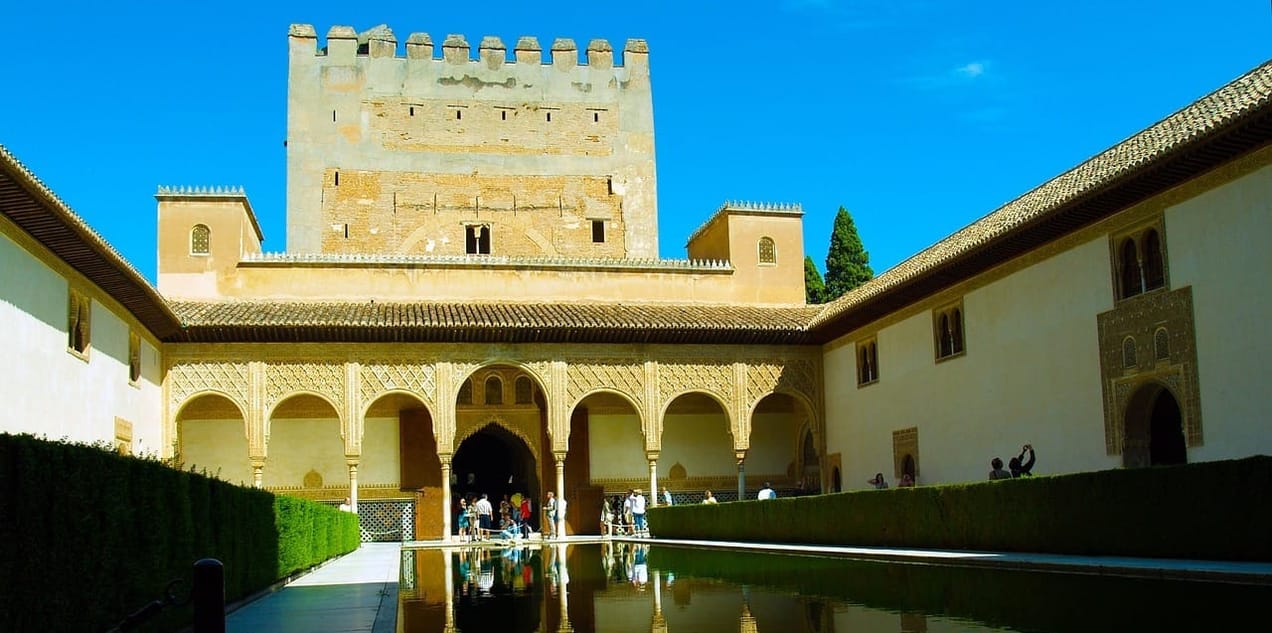
The landscape of biological ageing
Whilst we are living longer on average, our desire to 'cheat death' remains. And it has spurned a big, and growing industry.
Summary: Whilst life expectancy has been steadily rising on average, the desire to live longer remains. A number of 'battle grounds' are receiving investment - $5.2 bn in 2022 - including renewal therapies, diagnostics, precision medicine, drug discovery platforms and immunology. Other relevant, and maybe not so obvious areas, include diet and mental fitness.
Why this is important: The whole approach to health and well-being could move from one focused on treatment to prevention; from allopathic (focus on specific ailments) to holistic. If we do start living longer, and in better health, there will be knock-on effects to society, family, education and productivity.
The big theme: The ongoing survival of the human species is one of the ultimate sustainability themes. Understanding the broad spectrum of influences on human ageing can help us understand areas for investment as well as individual choices that we can make.

The details
We're living longer
Life expectancy has been rising steadily in modern times. Improvements in healthcare, advances in medicine, hygiene, living conditions as well as food and nutrition have led to us living longer. Spikes and dips can occur due to changes in reporting, pandemics and wars - 2020 saw a dip following the COVID-19 pandemic.
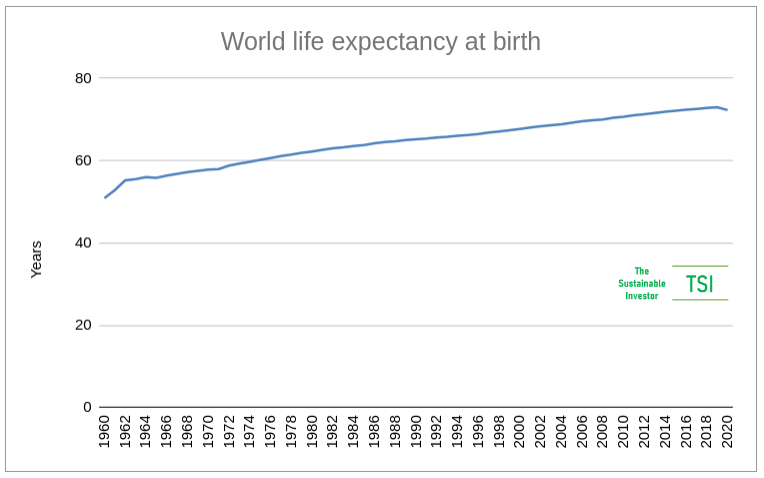
Life expectancy varies by income levels and gender.
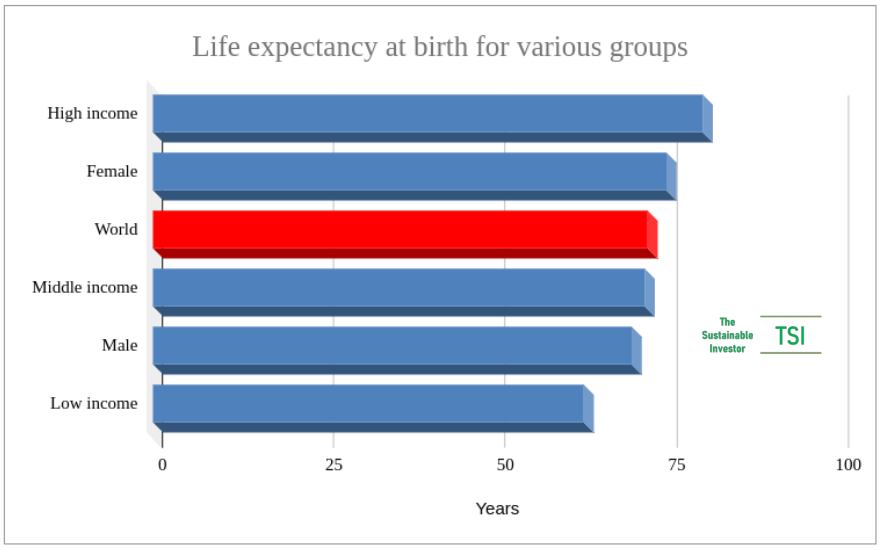
We're living longer than the middle ages right?
It is commonly perceived that we are living much longer now than before. Look at England and Wales for example:
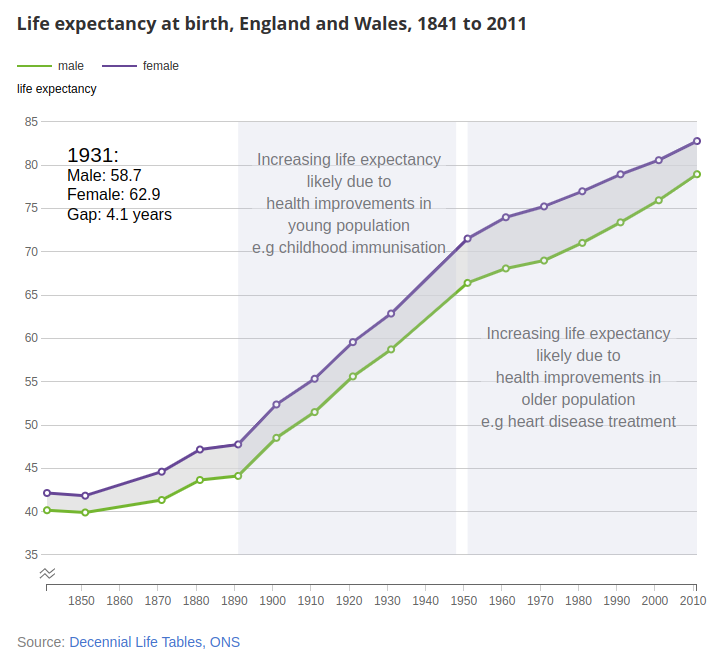
So it must be especially true for the middle ages right?
Firstly, what do we actually mean by 'life expectancy'? We normally refer to life expectancy at birth, or how many more years would they live, assuming the patterns of mortality at the time of a birth stayed the same throughout their life. It doesn't mean that I will die after x years. Patterns of mortality are unlikely to stay the same. It is also an average. Averages are deceptive beasts.
Anthropologists and bioarchaeologists can estimate how old people were when they died by examining teeth and bones, looking for changes in pelvic joints and mineral layers in teeth (similar to counting a tree's rings).
Sharon DeWitte from the University of South Carolina points out that in medieval England, whilst life expectancy at birth for boys born to land owning families was only just over 31 years, the life expectancy at the age of 25 for landowners was almost 26, i.e. they would have lived to more than 50 years old on average. That means that finding people living into their 70s or 80s would have been possible.
Life expectancy at birth for any population is very reflective of infant mortality, i.e. death during the first year of life. Here is an example - Singapore and Afghanistan demonstrating that linkage.
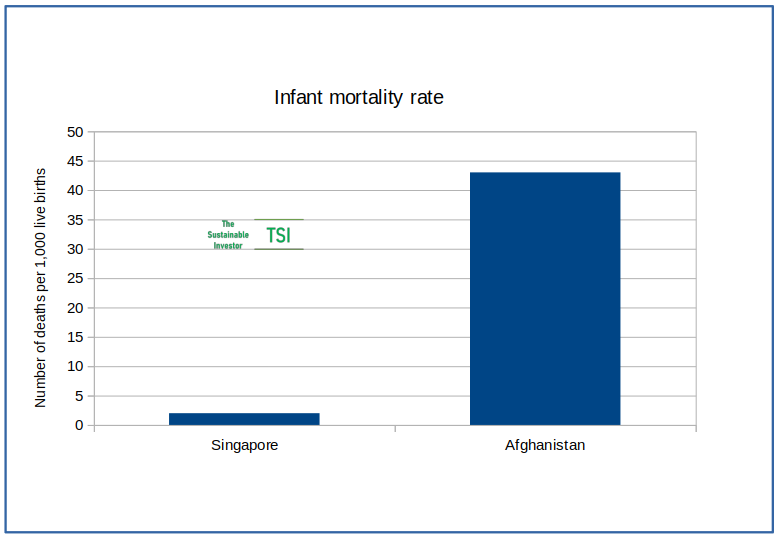
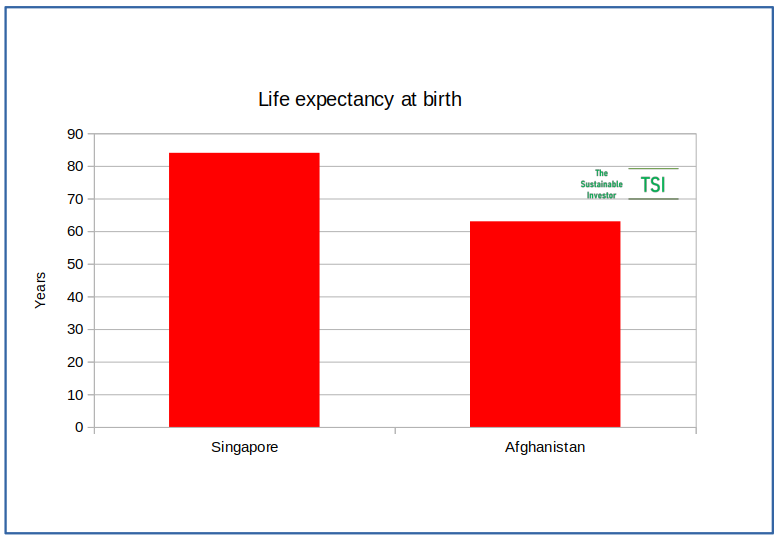
So reducing infant mortality should also improve the population life expectancy.
Are immortals walking among us?
Making humans immortal would be an Olympian task given that there are so many ways in which we can die that are not biological. What we do with it and the circumstances in which we live are still going to impact when we die.
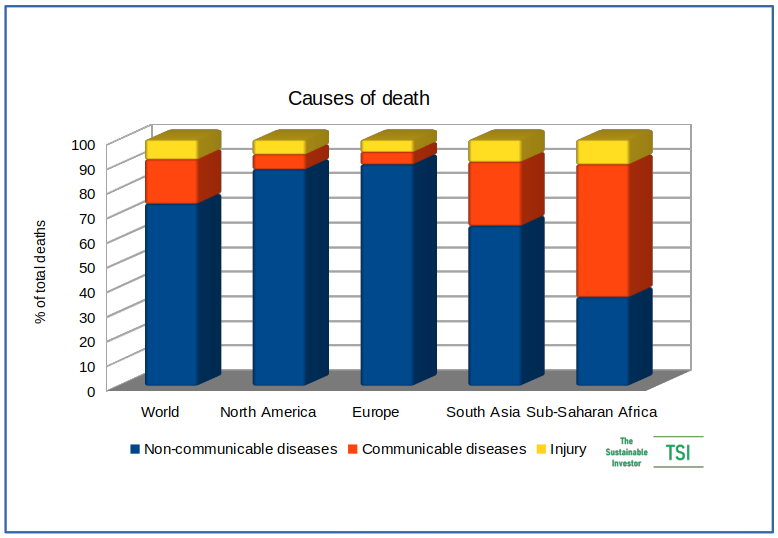
Longevity investments and research are focused on slowing or eliminating biological ageing.
Slowing biological ageing is as much about improving the quality of that longer life. Health-Adjusted Life Expectancy ('HALE') considers how much of a person's life is spent free from disease and injury. That also varies by region and income groups.
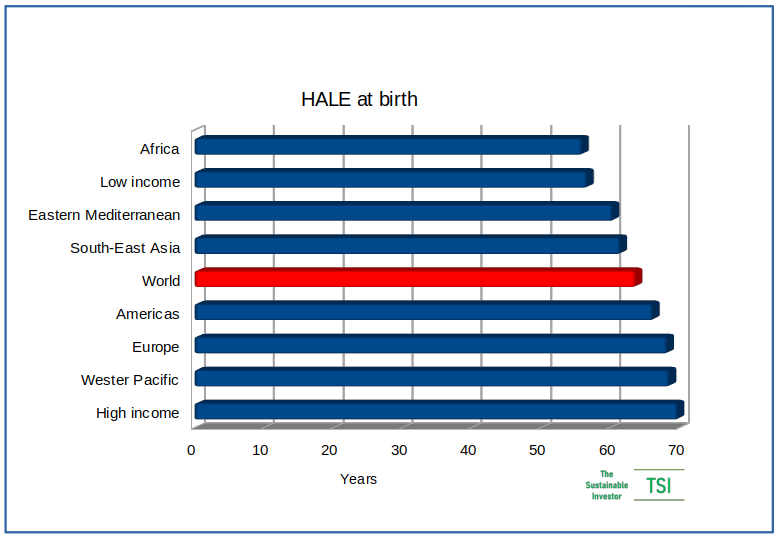
The battle grounds for ageing
There are a number of broad areas that are being investigated to slow down or even stop biological ageing. This is different to extending life expectancy. We noted earlier that one important way of increasing life expectancy is reducing infant mortality.
But what we are looking at here is reducing ageing for those that have made it into adulthood. Biological immortality may be possible.
Areas include (but are not limited to):
- Renewal therapies: includes regeneration, rejuvenation and cellular reprogramming, returning our individual cells back to a more youthful state either through genetic code programming, intra-cellular debris clearing, autophagy (reusing old/damaged cell parts) or even creating whole organs.
- Degenerative diseases: targeting specific ailments including Alzheimer's, Parkinsons, motor neuron disease and cancers.
- Diagnostics and precision medicine: improving our ability to identify and monitor ageing, creating personalised therapies.
- Drug discovery: Combining AI, machine learning and big data to enhance the discovery of new therapies.
- Immunology: identifying ways of improving our immune systems to combat disease and target inflammation.
- Diet: 'let food be thy medicine and medicine be thy food'. The relationship between gut microbiome and overall health is better understood as well as eating patterns (fasting) and metabolism and autophagy.
- Mental fitness: Our emotional and physical well-being are intertwined. Training including mental fitness apps such as Fika, brain training, wellness tourism and social infrastructure to aid with, for example, loneliness.
- Aesthetics: these are rejuvenation approaches targeting skin, the largest organ in the human body, and hair.
There are a number of organisations and investors spending money and resources investigating the above areas (and others) creating a so-called longevity industry. In January 2022, Altos Labs launched with $3 bn in funding focusing on cellular rejuvenation. Jeff Bezos is thought to be an investor. Foundations worth noting include the Methuselah Foundation and the SENS Research Foundation.
However, according to a report from Longevity.Technology, 2022 was a significant down year in investment both in dollar amount (down 16 percent to $5.2 bn, and Altos Labs was more than half of that!) and the number of companies invested in (down 31.5 percent to 130). That said, the expectation is that significant clinical breakthroughs in the next couple of years could see investments accelerate. Also looking at the 'battle grounds' there will be areas of activity and investment not necessarily captured in 'longevity' analysis.
In a future long blog we shall examine ageing in more depth and in particular efforts to bring upon the 'death of ageing' or rather stop or dramatically slow biological ageing. We shall focus on the 'battle grounds' mentioned above.
We shall also look at the socioeconomic and environmental implications of extending our lives.
Something a little more bespoke?
Get in touch if there is a particular topic you would like us to write on. Just for you.
Contact us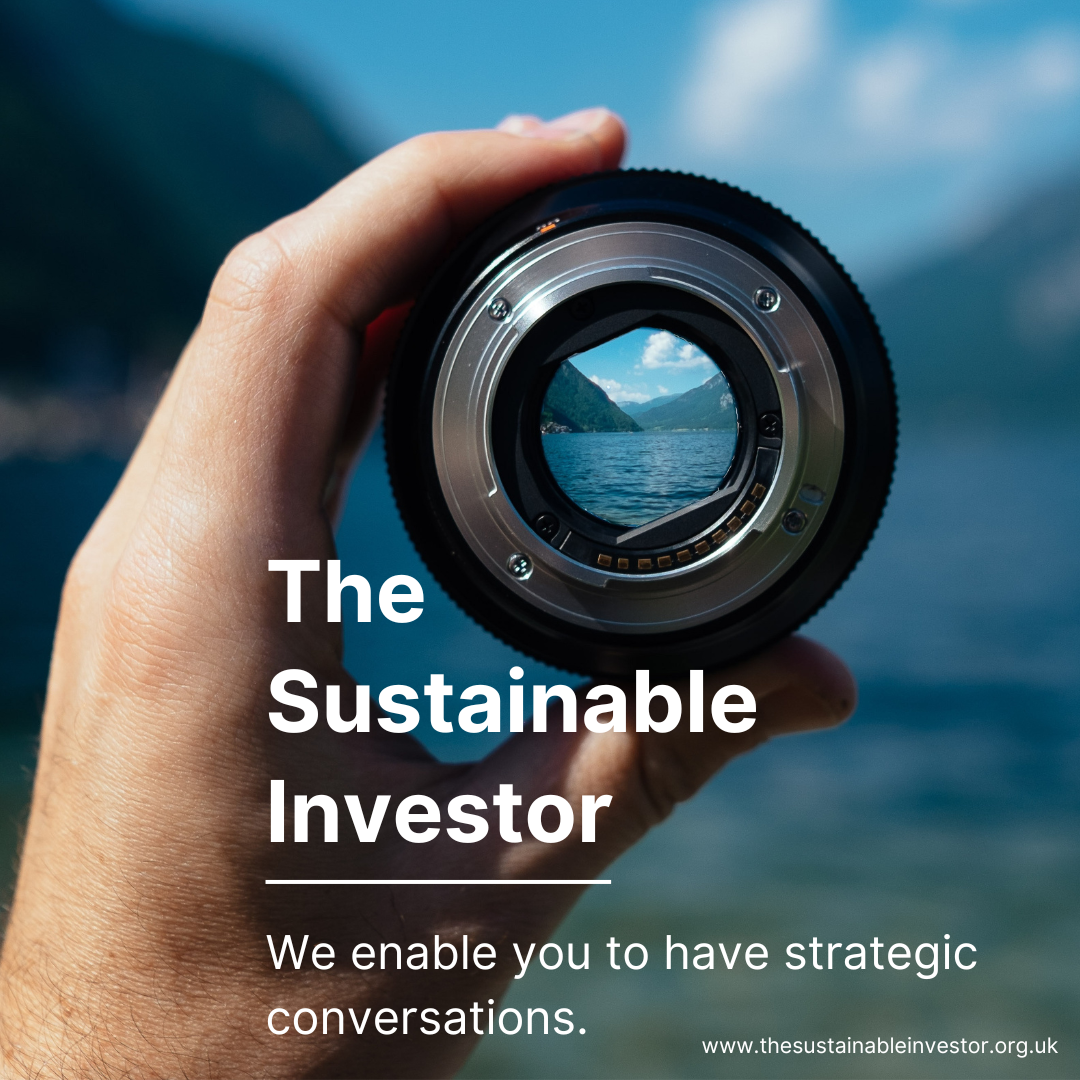
Please read: important legal stuff.

